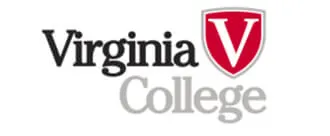If you want to be part of the medical field and work with orthopaedic surgeons, you might be interested in Virginia College's Associate of Science in Orthopaedic Technology program. Keep reading to learn more about Virginia College's Associate of Science in Orthopaedic Technology program.
<h2 id="section---FrequentlyAskedQuestions">Frequently Asked Questions</h2>
<h3 id="section---WhatKindOfProgramIsIt">What Kind of Program Is It?</h3>
<p>Virginia College's Associate of Science in Orthopaedic Technology program is campus-based. After enrolling, you have the chance to learn how to work closely with doctors and support personnel. This program is also designed to teach about the application, adjustment, and removal of casts, splints, and braces, medical terminology, medical office procedures, and insurance coding. Once you complete this program, you could be able to understand the human body's medical components, how to meet OSHA specifications, the importance of patient confidentiality, and surgical instruments and orthopaedic equipment. The program also offers the chance to get hands-on experience through a six-credit orthopaedic technologist externship.
</p>
<h3 id="section---WhatAreThePrerequisites">What Are the Prerequisites?</h3>
<p>Before enrolling in the Associate of Science in Orthopaedic Technology program at Virginia College, you should be interested in working in the medical field with doctors and patients. Applicants to Virginia College programs should have a high school diploma or GED.
</p>
<h3 id="section---WhatAreTheCourseRequirements">What Are the Course Requirements?</h3>
<p>Virginia College's Associate of Science in Orthopaedic Technology program consists of 96 credit hours. You'll take eight credits of foundation courses and 64 credits of concentration courses. You also have to complete 24 credits of general education courses in communications, humanities and fine arts, mathematics, and social and behavioral sciences.
</p>
<p><u>Foundation Courses</u>
</p>
<p />
<table border="1"><tr><th>Course Code</th><th>Course Name</th></tr>
<tr><td>EDU 1010</td><td> Learning Framework</td></tr>
<tr><td>EDU 1020</td><td> Career Exploration/Planning</td></tr>
</table><p><u>Concentration Courses</u>
</p>
<p />
<table border="1"><tr><th>Course Code</th><th>Course Name</th></tr>
<tr><td>BIO 1120</td><td> Anatomy and Physiology: Body Structures</td></tr>
<tr><td>BIO 1130</td><td> Anatomy and Physiology: Organs and Systems</td></tr>
<tr><td>MEA 1010</td><td> Clinical Office Procedures</td></tr>
<tr><td>MED 1010</td><td> Medical Terminology</td></tr>
<tr><td>MED 1140</td><td> Medical Law and Ethics</td></tr>
<tr><td>MED 1210</td><td> Pathophysiology</td></tr>
<tr><td>OTH 1010</td><td> Introduction to Orthopaedic Technology</td></tr>
<tr><td>OTH 1020</td><td> Intermediate Orthopaedic Technology</td></tr>
<tr><td>OTH 1700</td><td> Orthopaedic Equipment and Supplies</td></tr>
<tr><td>OTH 1710</td><td> Fracture Healing and Complications</td></tr>
<tr><td>OTH 2010</td><td> Advanced Orthopaedic Technology Techniques</td></tr>
<tr><td>OTH 2210</td><td> Orthopaedic Surgical Techniques</td></tr>
<tr><td>OTH 2510</td><td> Orthopaedic Technologist Certification Review</td></tr>
<tr><td>OTH 2610</td><td> Orthopaedic Technologist Externship</td></tr>
<tr><td>SUR 1010</td><td> Aseptic Technique</td></tr>
<tr><td>SUR 1500</td><td> Introduction to the Surgical Environment</td></tr>
<tr><td>SUR 2190</td><td> Pharmacology for the Surgical Technologist</td></tr>
</table><h3 id="section---WhatCouldIDoAfterIGraduate">What Could I Do After I Graduate?</h3>
<h4 id="section---CareerOpportunities">Career Opportunities</h4>
<p>Virginia College's Associate of Science in Orthopaedic Technology program is designed to prepare you to work with orthopaedic surgeons. Your work could include putting on or removing casts, splits, or braces. Job titles that you might be able to pursue include:
</p>
<ul><li>Assistant to orthopaedic surgeons
</li><li>Orthopaedic technician
</li><li>Orthopaedic technologist
</li><li>Orthopedic cast technician
</li></ul><h4 id="section---AdvancedDegrees">Advanced Degrees</h4>
<p>If you're interested in advancing in the orthopaedic technology field, you might want to pursue a bachelor's degree in medical technology, imaging, or athletic training. This could increase your knowledge of performing medical tests on patients or injury prevention.
</p>
<p>Bachelor's degree options include but are not limited to:
</p>
<ul><li>Bachelor of Science in Medical Technology
</li><li>Bachelor in Athletic Training
</li><li>Bachelor in Applied Science and Technology in Medical Imaging
</li></ul><p><i>Advanced degrees may not be offered at Virginia College, and credits may not be transferable.</i></p>



.svg)


